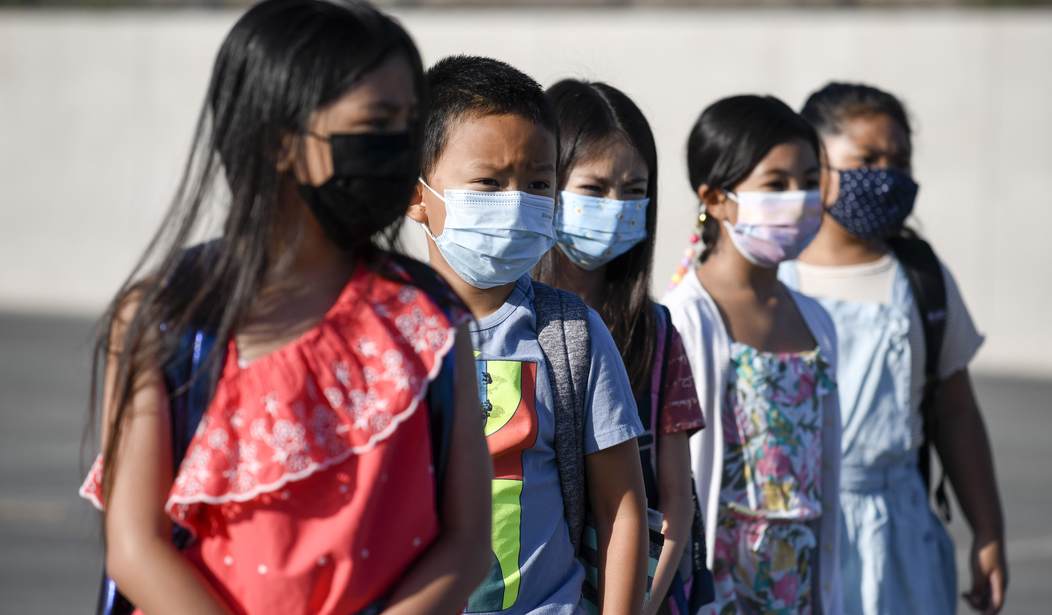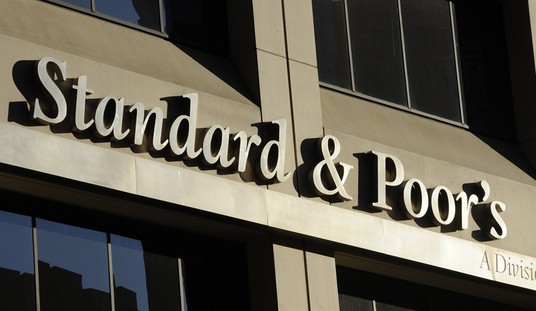We’re about to have a prolonged, characteristically nasty and polarizing national debate over whether children should be vaccinated. It’s unavoidable given the intent of some jurisdictions, like California, to mandate the vaccine for students.
What shouldn’t need much debating is whether kids should be eligible to be vaccinated. The trial data looks good: Children enjoy strong protection against infection (91 percent) from a one-third dose of the vaccine and seldom experience unusual side effects. Millions of parents are eager to get their little ones the shot in order to have peace of mind when socializing with others, whether because they fear their kid will be the extreme outlier who ends up with a severe case or because they’re worried about their child infecting grandma or grandpa.
The FDA’s advisory panel met today to discuss whether to recommend the vaccine based on the data before them. That’s step one in a four-step process towards emergency use authorization; next comes approval by the head of the FDA, then a meeting of the CDC’s advisory panel, then approval by CDC chief Rochelle Walensky.
The X-factor which the panel couldn’t answer is how often young kids might end up with a case of myocarditis, i.e. heart inflammation, after being immunized. That happens in older children, albeit only rarely. None of the kids in Pfizer’s trial of 1,500 kids got myocarditis, for what that’s worth. But the choice for each parent isn’t between exposing kids to the unknown health risks from a new vaccine or doing nothing, which is how it’ll be commonly framed by vax-skeptic parents. The choice is between exposing kids to the unknown health risks from a new vaccine or the unknown health risks from a novel virus, which we’ll all likely be infected with eventually. That’s how the FDA panel approached the issue, concluding that children as a group are better off taking their chances with the vaccine than with COVID.
The FDA modeling several scenarios to estimate the effect of vaccinating children. One showed that vaccinating 1 million 5-11 year olds would prevent 58,000 infections, 241 hospitalizations and one death. In that same 1 million, there might be anywhere from 22 to 106 cases of myocarditis associated with the vaccine. Most would be expected to fully recover…
However, when the level of COVID-19 transmission in the community is low, there may be more hospital admissions due to myocarditis than COVID-19, Wang said.
Nearly two million kids between ages five and 11 have been infected, per data presented at the hearing, and 8,300 have been hospitalized with a third of those landing in the ICU. In the end the panel voted 17-0 with one abstention to approve the vaccine — although not without some misgivings. The CDC offered data showing that 42 percent of kids 5-11 who have been under clinical care have tested positive for antibodies, indicating that a high degree of natural immunity may already be present across the population of young children. Some panelists ended up wondering whether vaccinating kids was truly necessary and for whose benefit it was ultimately being done:
“This is a much tougher one, I think, than we had expected coming into it,” said committee member Dr. Eric Rubin, editor-in-chief of the New England Journal of Medicine. “The data show that the vaccine works and it’s pretty safe, … [yet] we’re worried about a side effect that we can’t measure yet,” he said, referring to a heart condition called myocarditis…
“It just seems to me that in some ways, we’re vaccinating children to protect the adults, and it should be the other way around,” said committee member Dr. James Hildreth, president and CEO of Meharry Medical College in Tennessee. “I do believe that children at highest risk do need to be vaccinated. But vaccinating all of the children … that seems a bit that much for me.”
Another panelist said he was “worried that if we say yes that the states are going to mandate administration of this vaccine to children in order to go to school, and I do not agree with that… I think that would be an error at this time until we get more information about the safety.” With advocates like these, who needs vaccine critics?
Still, as I say, the panel decided that the measurable benefits outweighed any hypothetical risks. One panelist noted that while it’s true that few kids end up hospitalized or dead from COVID, children are routinely vaccinated for certain other diseases that lead to even fewer severe outcomes. Another pointed out that it’s reasonable to expect that vaccinating kids will reduce transmission throughout the population, which may save a lot of elderly people’s lives and keep schools open with less disruption.
So long as the vaccines aren’t mandated for students anytime soon (California won’t do it without full FDA approval, which is many months or even years away), each parent will get to wait and observe the real-world effects on families who are early adapters. There won’t be a rush to get kids vaccinated although a trickle may turn into a stream within a few months:
Aaron E. Carroll, a pediatrician and chief health officer of Indiana University, said people are overestimating “how many parents will rush out and get their children vaccinated. Many parents will be conservative, they will want to wait.”
While a large proportion of older people are vaccinated, parents of small children tend to be young, with much lower immunization rates, Carroll noted, adding they are unlikely to get their children immunized if they have not been vaccinated themselves. Only about half of adolescents eligible for a vaccine have received it, with the numbers higher among the older adolescents, he said.
The biggest surprise from the trials is that Pfizer stuck with a three-week waiting period between doses one and two, which has proved to be sub-optimal in adults. They chose that period in trials on adults last year because they were racing to bring the vaccine to market and wanted to minimize how long it would take someone to gain full protection in the middle of a pandemic. The fact that immunity begins to wane in adults within six months or so suggests that a longer interval between the doses might have produced stronger, more durable protection. Since kids are low-risk, I would have thought Pfizer might try longer wait periods between the first and second doses for them, especially if a longer delay ends up producing enough immunity from the second dose that they might not need a booster eventually. Some doctors want the CDC to consider that when it rules on vaccinating kids next week. Stay tuned.








Join the conversation as a VIP Member